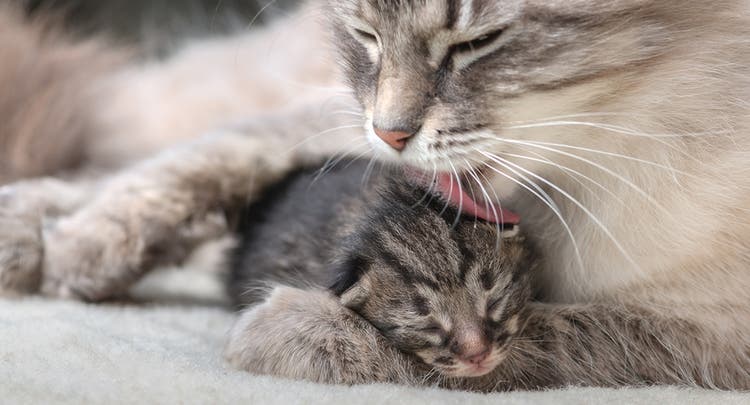What to know about kittens and worms.
Kittens can easily contract worms, and when they do, they can be more severely affected by infections than adult cats. If left untreated, worms can cause weight loss, vomiting, diarrhea, blood loss and a range of other health issues that can negatively impact kittens’ growth. While adult cats often don’t show signs of infection, kittens typically will have symptoms.
Many deworming treatments are not suitable for kittens under eight weeks old, so familiarizing yourself with the signs and symptoms of worms, as well as the types of treatments available, can help with preparation and prevention. Keep reading to get the facts about the worms kittens can contract and when you can start giving your kitten a deworming treatment.
Types of Worms Commonly Found in Kittens
There are three main types of worms that can infect your kitten: roundworms, tapeworms and hookworms.
Roundworms
Roundworms are very common and can be passed on through:
- The feces of an infected cat
- Infected soil
- Their mother’s milk
- Eating rodents
Because of their age and obvious close contact with their mother, kittens are particularly susceptible to roundworm.
Tapeworms
Tapeworms are long, flat and segmented. Kittens are most likely to contract a tapeworm by accidentally eating infected fleas while grooming. As the kitten grooms, they ingest these infected fleas and the larva of the tapeworm attaches itself to the kitten’s small intestine, where it develops into an adult worm.
Hookworms
Kittens can also catch hookworms, internal parasites with razor-like mouthparts, through contaminated soil or feces or by eating infected rodents.
Symptoms of Intestinal Worms in Kittens
Unlike adult cats, kittens typically show signs of a worm infection. Keep an eye out for these symptoms:
- Small, rice-like pieces in your kitten’s feces or around their back end
- Diarrhea
- Blood in the stool
- Weight loss
- Bloated abdomen
- Rapid breathing
Call your vet if you notice any of these symptoms in your kitten.
When to Begin Deworming Treatments in Kittens
In contrast to puppies, kittens are not born already infected with worms, but they can contract them from their mother’s milk. Because of this risk, deworming treatment for a kitten typically begins from a young age.
Deworming treatments are available that help kill many types of intestinal worms commonly found in cats. Be sure to read the label carefully or talk to your vet to learn the age at which kittens can begin treatment with your deworming product of choice. Most products can safely be used on kittens age eight or nine weeks and older, though some are safe for kittens as young as six weeks of age.
If your kitten is younger than the recommended age listed on a dewormer, contact your veterinarian.
Related Articles

New Cat or Kitten: Our Downloadable Guide
Thinking about adding a feline to the family? There are so many emotional, social and physical benefits to owning a cat. Check out our free guide, also available to download!






